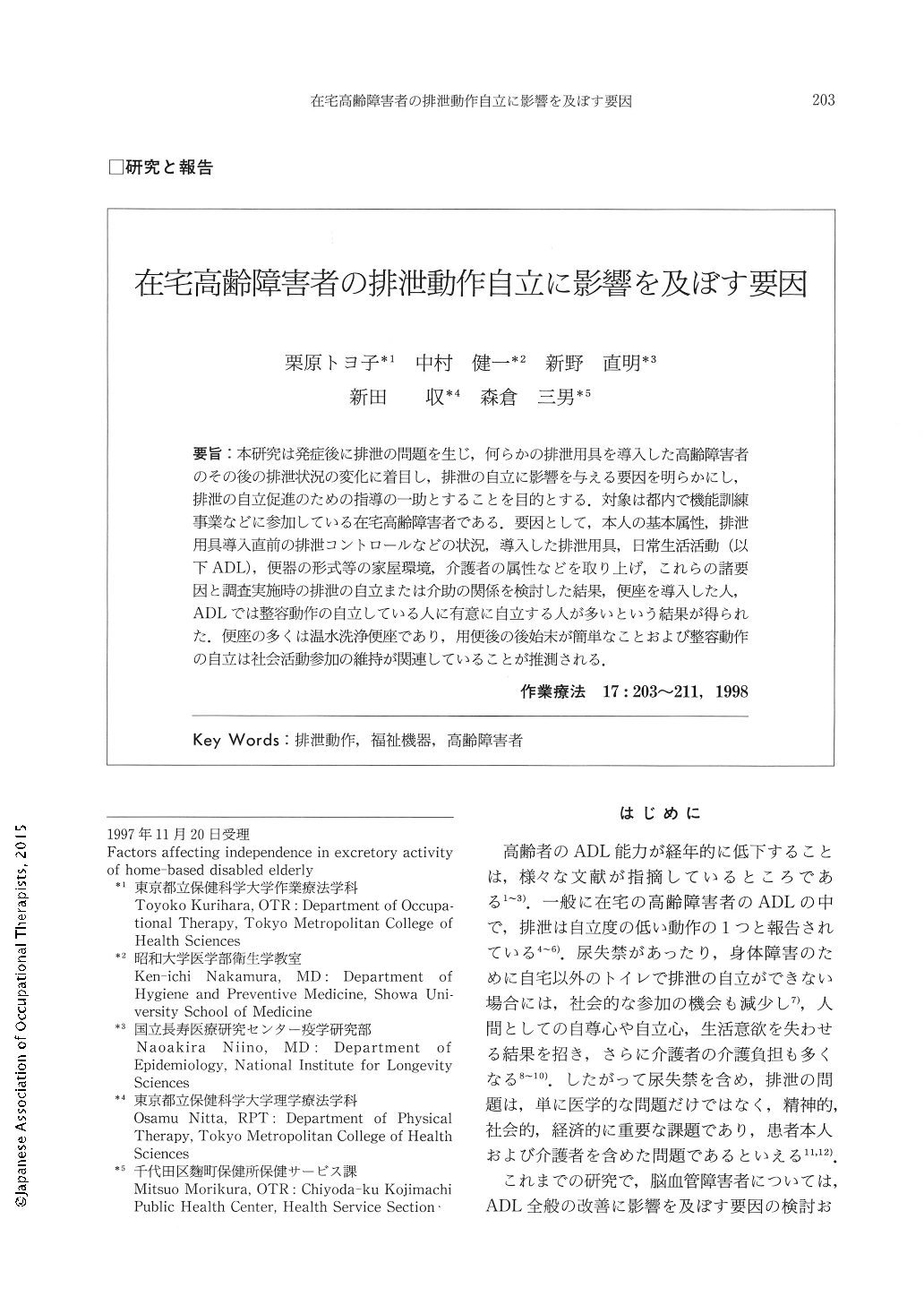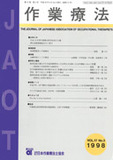Japanese
English
- 販売していません
- Abstract 文献概要
- 1ページ目 Look Inside
- 参考文献 Reference
要旨:本研究は発症後に排泄の問題を生じ,何らかの排泄用具を導入した高齢障害者のその後の排泄状況の変化に着目し,排泄の自立に影響を与える要因を明らかにし,排泄の自立促進のための指導の一助とすることを目的とする.対象は都内で機能訓練事業などに参加している在宅高齢障害者である.要因として,本人の基本属性,排泄用具導入直前の排泄コントロールなどの状況,導入した排泄用具,日常生活活動(以下ADL),便器の形式等の家屋環境,介護者の属性などを取り上げ,これらの諸要因と調査実施時の排泄の自立または介助の関係を検討した結果,便座を導入した人,ADLでは整容動作の自立している人に有意に自立する人が多いという結果が得られた.便座の多くは温水洗浄便座であり,用便後の後始末が簡単なことおよび整容動作の自立は社会活動参加の維持が関連していることが推測される.
The purpose of this study is to clarify the effective factors in improving excretory activity of homebased persons with cerebro-vascular disease or rheumatism who use excretive devices. Clarification was achieved by analyzing the relationship between stages of the excretory activity and such factors as basic information of the patients and their assistants (e.g. age and sex), their functional status before using devices, and their living environment (e.g. bed and toilet seat).
The results revealed that patients who used toilet seats, especially seats equipped with an automatic washer, but did not consult therapists about using such devices, made significant progress in excretory activity.
Independence in grooming activities like washing one's face, and transfer without the use of a wheelchair were also found to have improved.

Copyright © 1998, Japanese Association of Occupational Therapists. All rights reserved.


